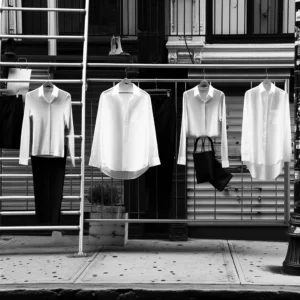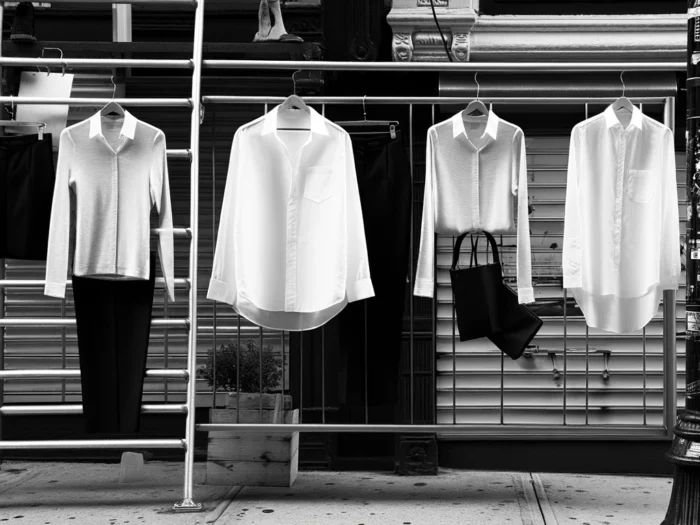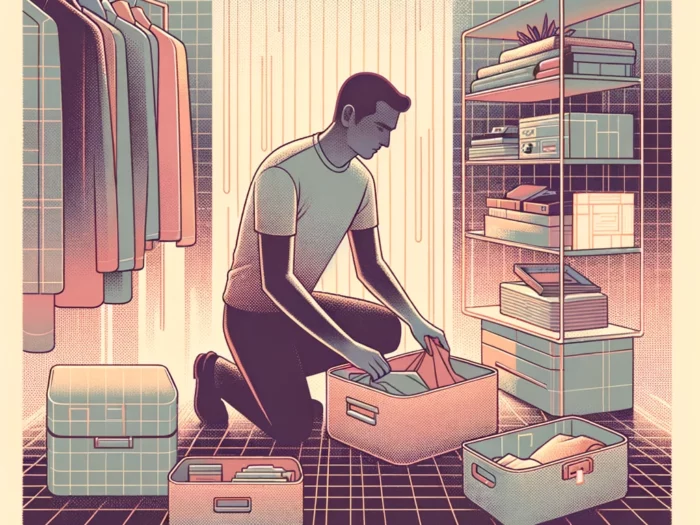
Poverty is a problem in America. Sometimes people live in extreme poverty due to circumstances or forces beyond their control. But quit telling me the system is rigged and that our decisions do not influence our ability to overcome hardships. That’s simply a victim mentality.
I’m writing this post in response to some negative feedback I’ve received from a previous post called, How Consumerism Is Making America’s Poor Poorer.
First, I’d like to make something clear: In my original post about poverty in America, I make no claims that consumerism is the only factor contributing to poverty. I’m also not referring to people in extreme poverty. I simply observe that many people who live in moderate poverty are also the product of excessive consumerism. They buy what they’ve been sold, which is often much more than anyone truly needs.
Some of the feedback I received in regard to my post, How Consumerism Is Making America’s Poor Poorer, reeked of victim mentality. “It’s not peoples’ choices that make them poor, it’s the system.” One meme that was posted on my Hip Diggs’ Facebook page claims that:
Some Bogus Statistics
- College tuition is up by 1,120%: I teach at a college. Tuition has only increased by about 30-50% in the 15+ years that I’ve worked in higher education. Too much? Yes. But not over 1000%.
- Medical care is up 601%: We have overpriced medical care in the United States for certain. Still, I’m not paying six times what I paid for a doctor’s visit 20 years ago. Basic needs up slightly more than inflation.
- Housing costs are up 380%: My rent for a 2-bedroom apartment was $505 in 2005. It was $650 in 2013. Now I have a $1050 mortgage payment for a 3-bedroom home. That is not a 380% increase. I do understand that some markets have seen larger increases than others. Housing costs rise less than a Big Mac.
The meme goes on to claim that people have only received 10% in raises and that minimum wage has fallen 5.5%. However, it’s going up from $10 to $15 per hour in my state. I know that some states lag behind in this area.
I understand that the cost of living has increased while wages have struggled to keep up with those costs. But to blame all cases of poverty on these manipulated statistics is somewhat of a victim mentality.
Let’s Talk About Being Victims Of Poverty
I was born into a poor family. My father was a small-town preacher and was often unemployed. My mother was a stay-at-home mom with five kids.
To make things worse, my parents chose to join a religious cult when I was 10 years old. We lived in extremely poor circumstances throughout my teens. We often went without electricity and had buckets under our sinks because we could not afford a plumber.
My parents had to get food stamps and government handouts to feed our family. We had little beyond our basic needs. I know what it means to be poor. My dad remained poor to his dying day. Still, he had his basic needs covered and he was happy. And he didn’t blame anyone for his condition.
My childhood set me up to remain poor. I didn’t go to college after high school. I lived in trailers and shared one-bedroom apartments among three people. My jobs included working for restaurants and mini-marts. And I didn’t even own a TV until I was in my 30s. I didn’t own a car through most of my 20s. I rode a bike out of need.
Like many today, I complained about the system back then. I blamed my conditions on minimum wage, high college costs, and my unfair start in a cult. I was envious of those who were better off than me. And that attitude is exactly what kept me in poverty.
Enough Of The Victim Mentality
When I was 29 years old, I made a decision to change. I decided to stop complaining and go to college. It was one of the best choices I’ve made in my life.
Did I have to struggle to make ends meet through college? Of course. Did I have to borrow money to get three degrees over an eight-year period? You bet. Did I forfeit buying big TVs, cell phones, computers, and other extras and continue to live at poverty level in my 30s? Absolutely!
To continue to blame poverty on our surrounding conditions and circumstances ignores the fact that people have the ability to change. But for the most dire cases, we can make choices that will lead to better circumstances. My sister returned to college as a single mother of three children and became a CPA.
Critics can claim that the idea of consumerism contributing to poverty is a myth. But reality would disagree.
You can walk down nearly any street in any town in America and see symptoms of poverty from overconsumption. You can trek through moderately-poor neighborhoods where teenagers wear Jordans and other high-priced fashion items. Their families have big-screen TVs, iPhones, and pickup trucks, but can barely pay the rent. Don’t tell me that overconsumption has nothing to do with poverty.
Obviously, consumerism is not the sole cause of poverty, but it is a contributing factor. And it’s also an addictive spiral. People often buy things to feel better about themselves. Meanwhile, the very things they are buying are keeping them in poverty.
Minimalism Can Help Break The Cycle
Those who commented negatively in response to my post on poverty in America suggested that I’m privileged and judgmental. I would argue that they are right.
Yes, I am privileged, but I’m not filthy rich. I make a point to live simply so that I can afford a few conveniences for myself and my daughter. It’s been through simple living and sacrifice that I’ve been able to go back to college and buy a home. Rather than continuing with a victim mentality, I made intentional choices to move forward.
Yes, I am judgmental. However, I make an honest effort to refrain from judging individuals. My judgments are directed not at specific people. Instead, I observe the human condition and make judgments about overarching aspects of life and explore ways we can make positive changes in order to live more happily and free.












